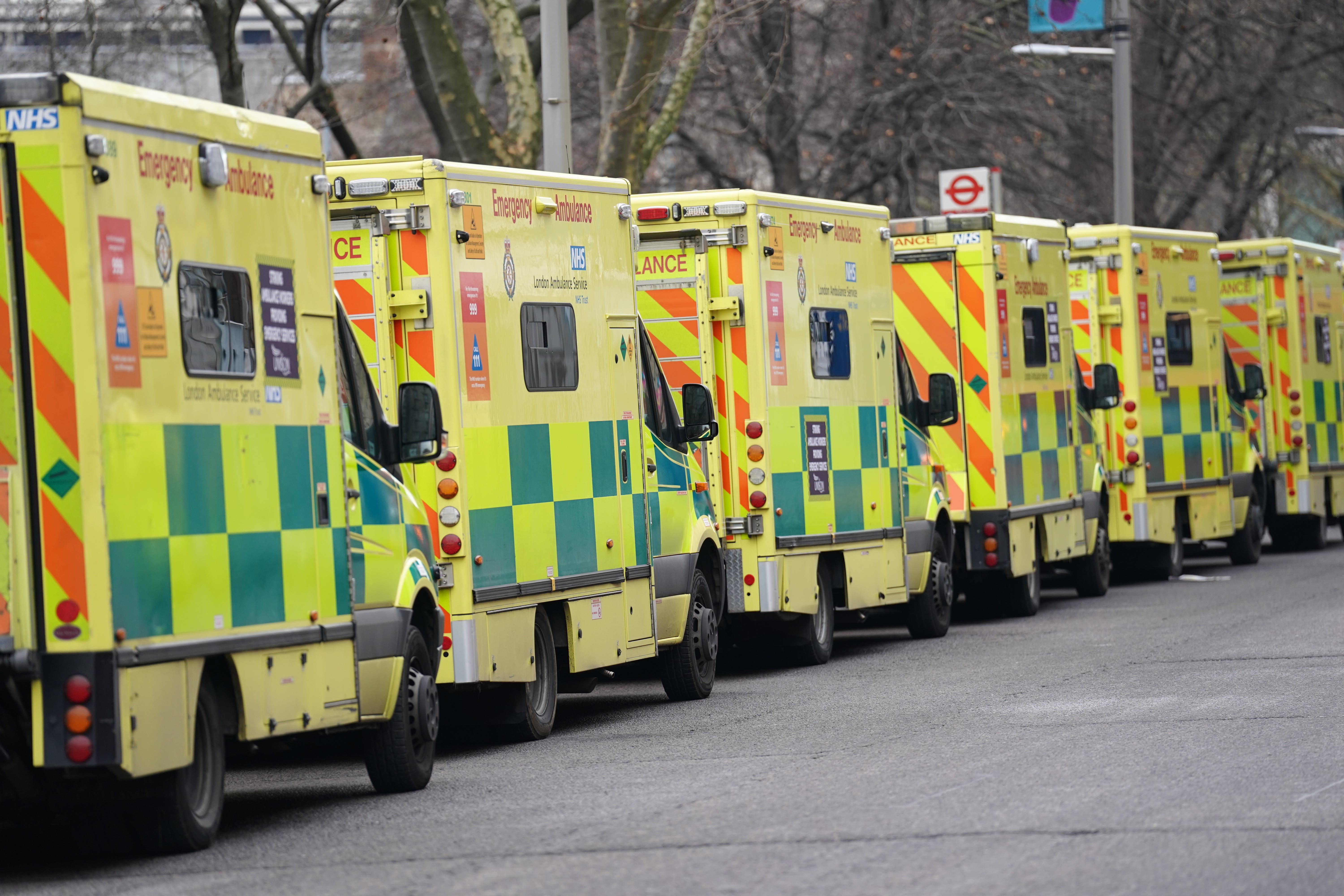Ambulance, GP and emergency care waits among biggest NHS concerns – poll
The survey was carried out by Ipsos on behalf of the PA news agency.

Long waits for A&E care, ambulances and GP appointments are among the biggest worries that Britons have about the NHS, according to a survey.
It comes as more than eight in 10 people said they have concerns about the health service overall, with half not confident that the Government’s plans for the NHS will lead to improvements in the next five years.
Only about a quarter of those who responded to the poll were aware of Labour’s pledge to bring down waiting times.
The survey of 1,081 people, conducted by Ipsos on behalf of the PA news agency, showed 83% have concerns about the NHS.
The chief concerns were: A&E waiting times (68%); as well as long waits for GP appointments (63%); planned hospital appointments (62%) and ambulances (62%).
About half of those with concerns said they are concerned about the workload on healthcare staff (52%) and the quality of care being delivered (49%).
The NHS is broken but it is not beaten. It is no surprise to see so many people concerned about the state of the NHS
Some 38% said they have concerns about the NHS’s ability to recruit staff, while a third said they were worried about the wellbeing of existing workers.
About a quarter of those who said they were concerned about the NHS at the moment said they were concerned about staff pay (26%), the qualifications of workers being recruited (24%) and the share of contracts being offered to private healthcare providers (23%).
The Department of Health and Social Care (DHSC) said the results are “no surprise” but vowed “turn the health service around”.
The Government’s 10 Year Health Plan is expected to be published in the spring and will focus more on ill-health prevention, digital technologies and shifting more care from hospitals into the community.
A DHSC spokesperson said: “The NHS is broken but it is not beaten.
“It is no surprise to see so many people concerned about the state of the NHS.”
It comes after Prime Minister Sir Keir Starmer pledged that by July 2029, 92% of patients would be seen within 18 weeks for pre-planned care such as hip and knee replacements.
However, just 24% of those who responded to the survey were aware of the plans.
It’s worrying, though unsurprising, that the public shares trust leaders’ doubts and concerns that key NHS pledges, such as the 18-week target for planned hospital treatment, are unlikely to be met over the next five years
More than half (52%) of the people who responded do not think the 18-week target will be met within one year, while just 36% said they think it could be achieved within five years.
Almost two thirds (65%) said they are not confident that the Government’s plans for the NHS will lead to improvements in the next year, which fell to 51% in the next five years.
The DHSC spokesperson added: “We inherited record long waiting lists but through our Plan for Change we will turn the health service around.
“The £26 billion provided at the budget means we can drive improvements across the NHS, we have set an ambitious target to cut waiting times from 18 months to a maximum of 18 weeks, and we will deliver an additional two million appointments during our first year in Government, equivalent to 40,000 per week.”
Saffron Cordery, interim chief executive of NHS Providers, said: “These figures once again underline the scale of the challenge facing NHS leaders as they try to restore public confidence in the health service.
“They know they need to go further and faster to bring down long waiting times across every part of the NHS so that patients get timely, high-quality care.
“It’s worrying, though unsurprising, that the public shares trust leaders’ doubts and concerns that key NHS pledges, such as the 18-week target for planned hospital treatment, are unlikely to be met over the next five years.
“However, despite a backdrop of soaring patient demand, the impact of a decade of underinvestment, and major workforce challenges across every part of the health and care system, trust leaders and their teams are absolutely determined to make much-needed progress.”
Bookmark popover
Removed from bookmarks